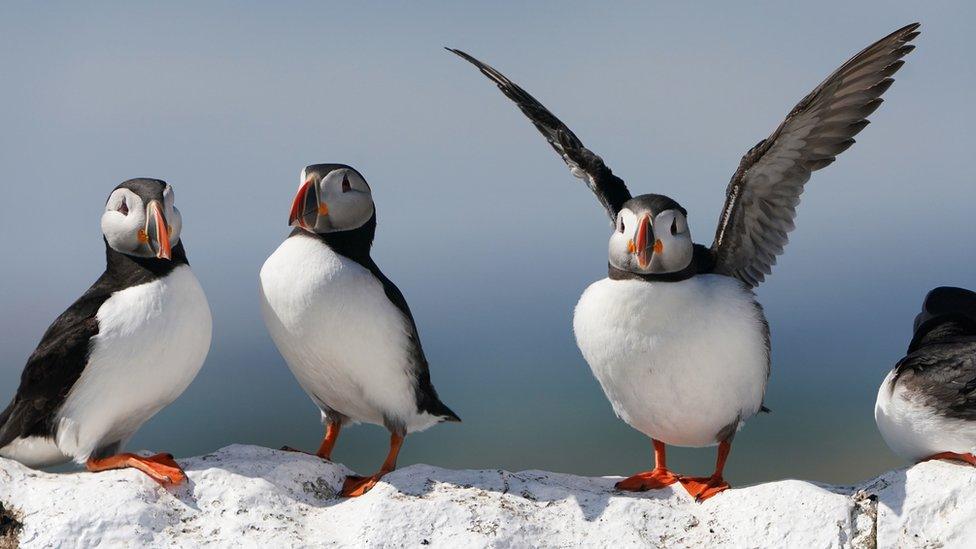Farne Islands puffin counts changed amid climate fears
- Published

Puffins on the Farne Islands are monitored by a team of 11 National Trust rangers
A five-yearly puffin census is being changed to an annual count amid fears climate change is affecting bird numbers.
The National Trust has carried out the survey on the Farne Islands, off the Northumberland coast, for 50 years.
Its 2018 survey showed stable numbers there, with an increase of about 9% since 2013 to 43,956 pairs of birds.
However, the trust said a global fall in numbers had led to puffins being listed as vulnerable to extinction.
Concerns centre around a reduction in the quality and abundance of its preferred food source, the sandeel, as well as more frequent storms as a result of climate change.
The trust said Atlantic puffins have traditionally done well on the Farne Islands due to work by rangers, a lack of predators, suitable nesting areas and protection of the surrounding marine areas.
Population 'squeeze' fears
Ranger Tom Hendry said: "Sandeel populations in the North Sea are being affected by two things - overfishing and climate change with rising sea temperatures.
"These factors are driving the good quality plankton which sandeels feed on further north, resulting in a poorer quality of plankton in this area for sandeels to feed upon.
"The risk is that these pressures together with overfishing will eventually 'squeeze' the Farnes population, with more and more birds having to travel further for rich feeding grounds.
"This means they're more vulnerable to the increasing frequency of winter storms, whilst out at sea."